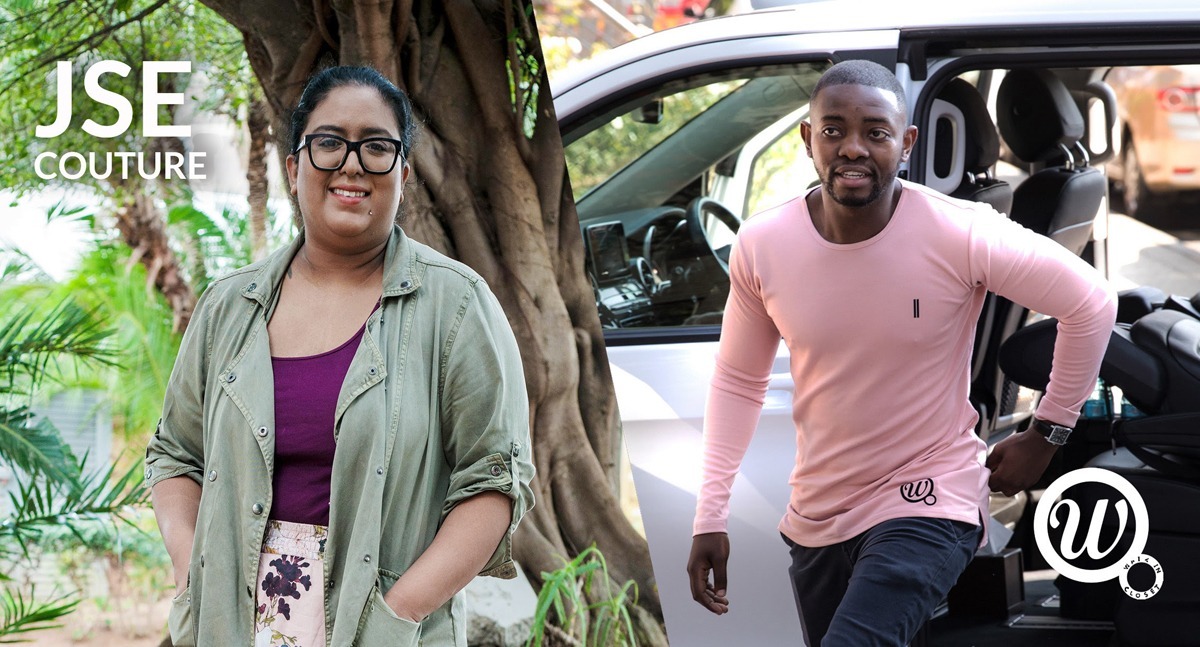 In September this year a new business of fashion accelerator programme, Threads was launched by marketing agency Nonzero, in collaboration with Standard Bank, to boost South Africa’s up-and-coming fashion designers.
In September this year a new business of fashion accelerator programme, Threads was launched by marketing agency Nonzero, in collaboration with Standard Bank, to boost South Africa’s up-and-coming fashion designers.
The 12-week programme, curated by the University Cattolica of Milan, focuses on the business operations of a fashion enterprise from financing and retaining employees, to lean manufacturing and e-commerce, as well as specialised procurement methods and marketing. It is taught simultaneously from four regional classroom hubs: Cape Town, Johannesburg, Durban and Port Elizabeth.
Ultimately 12 entrepreneurs were chosen for the programme, from jewellery and luxury shoe brands to belts and handbag design houses and denim wear brands. The programme kicked off on the 24th of October.
Two of the fashion entrepreneurs were recently interviewed by the Threads team about their decision to join the accelerator and the industry challenges the programme is helping them to overcome.
EVANS ZEMBA – Walk In Closet (WIC) Designs, a Port Elizabeth-based men and women’s leisurewear fashion house
Evans Zemba
“South Africa is bursting with design talent, this is not the problem. The problem is often the lack of business skills required to transform a small business into a profitable company, that is sustainable in the long term”
Why did you apply for Threads?
I have been struggling for a while in the fashion business and found myself at a stage where I felt stuck. Things like how to manage my finances, how to market my brand better and how to position my brand to compete with international brands were constantly on my mind. I was looking for guidance and support. A mentor. Someone who understands what I do and where I want to take my brand. That’s when a customer told me about Threads. It seemed to answer all my questions while addressing more aspects to consider for taking my brand to the next level.
What has inspired you to start your brand/business?
My inspiration was the lack of variety in the South African clothing industry and the fact that we are always looking to the western countries for inspiration, trends, ideas. The people I am surrounded with would constantly complain about how expensive the clothes they liked were and how complicated it was to buy them online. I saw an opportunity to address their wants, needs and desires while also improving the quality. The rest is history.
Tell us more about your brand.
WIC is an urban street style brand with a modern twist. Our focus lies on comfort and appealing designs. We want our clients not only to look good but also feel good. Our styles are meant to grab attention through simple but bold designs. Every single piece carries our signature logo, the letter “W”. We also give the customer the opportunity to personalize the garments to best suit their wants and needs.
What is the greatest challenge you faced so far as fashion entrepreneurs in South Africa?
The lack of resources is one of the main challenges in South Africa. It is difficult to find local suppliers who offer affordable, high quality and unique fabrics. Although there’s always the option to outsource internationally, it drives the production costs up which in turn will drive the final price up.
This is why you see designers using similar or the same fabrics, making it very difficult to justify a high price tag on a dress when the same fabric is found on every second hanger in YDE.
Further limitations can be found in local manufacturing and CMT’s (Cut, Make and Trim). The majority of South African CMT’s don’t specialise in complex, high-quality fashion manufacturing. They specialize in more simple, basic production like uniforms for example.
South Africa is bursting with design talent, this is not the problem. The problem is often the lack of business skills required to transform a small business into a profitable company, that is sustainable in the long term. Things like financial knowledge, marketing, pricing models and general management skills are critical to transform a good designer into the owner of a successful, profitable business.
What is your favourite side of doing business in the fashion industry?
The design process. From sourcing and testing different fabrics to seeing the idea come to life is priceless. That goes hand in hand with client interactions, listening to their opinions on our locally produced products and reading their reactions when touching, trying and finally buying a style.
This is what drives you as a fashion designer, the power of your garments to create emotions, thrill and excitement in the customers.
What trends do you currently see in the fashion industry, in SA and abroad?
Personalization is the new approach. You have to talk to your customers and understand them. Building brand trust and brand loyalty has become more important than ever before and retailers have to be more than just traders. They need to stand for something to get their brand across and create loyalty.
Another strong trend is the growing desire for health, beauty and fitness. At the same time, social media gives us the opportunity to become influencers while engaging with our consumers on different platforms, understanding their expectations and needs. With the internet and technology taking the fashion industry to new heights, South Africa needs to keep up.
JACQUELINE MUNSAMI – JSE Couture, a Durban-based fashion house that has three lines, Jacqui Emmanuel Couture, Jacqui Emmanuel Pret n’ Porter and Emmanuel Sportsluxe.
“People don’t take fashion as seriously in SA as they do in Europe. This is because the market is saturated with seamstresses that are not designers and an influx of Chinese imports”
Why did you apply for Threads?
I applied because I needed a boost in my business. I’m a creative that is good at designing but needs help from a business perspective. I needed growth, direction and reassurance. I also needed to learn from the best.
What has inspired you to start your brand/business?
Money, I want to make lots of it. I also am really passionate about what I do. I love making an impact in the lives of people through fashion. I wanted to create a sustainable income for people and myself by creating an in-house production line.
My brand surrounds itself on quality and the cutting edge design that is on trend with European fashion calendar. We pride ourselves on excellent fit and premium fabrication and trims. All our items are exclusive and have that signature look or feel to it. We create a line of sportswear that is luxury hence making it sportsluxe that [is also versatile].
People don’t take fashion as seriously in SA as they do in Europe. This is because the market is saturated with seamstresses that are not designers and an influx of Chinese imports. But by keeping the design and quality at a high level, people understand what they are paying for and will remain loyal to the brand.
What trends do you currently see in the fashion industry, in SA and abroad?
Clash of prints, bold textures and print. I love that we are using art as a medium for design. Geometrics have also been trending. I am crazy about Maxhosa By Laduma and Alexander McQueen who have also been doing a lot of print-on-print styling.






